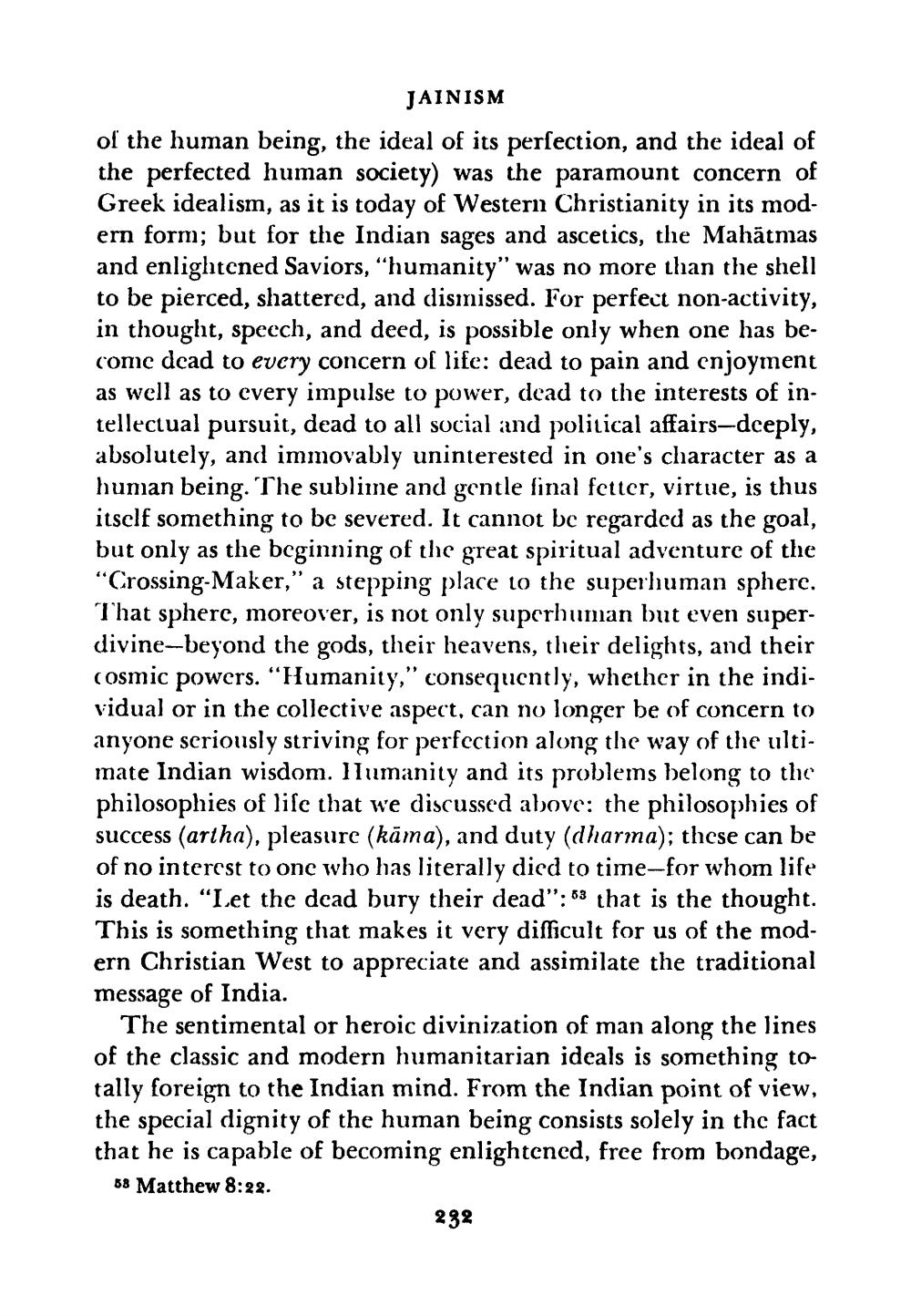________________
JAINISM of the human being, the ideal of its perfection, and the ideal of the perfected human society) was the paramount concern of Greek idealism, as it is today of Western Christianity in its modern form; but for the Indian sages and ascetics, the Mahātmas and enlightened Saviors, "humanity" was no more than the shell to be pierced, shattered, and dismissed. For perfect non-activity, in thought, specch, and deed, is possible only when one has become dead to every concern of life: dead to pain and enjoyment as well as to every impulse to power, dead to the interests of intellectual pursuit, dead to all social and political affairs-deeply, absolutely, and immovably uninterested in one's character as a human being. The sublime and gentle final fetter, virtue, is thus itself something to be severed. It cannot be regarded as the goal, but only as the beginning of the great spiritual adventure of the “Crossing-Maker,” a stepping place to the superhuman sphere. That sphere, moreover, is not only superhuman but even superdivine-beyond the gods, their heavens, their delights, and their cosmic powers. “Humanity," consequently, whether in the individual or in the collective aspect, can no longer be of concern to anyone seriously striving for perfection along the way of the ultimate Indian wisdom. llumanity and its problems belong to the philosophies of life that we discussed above: the philosophies of success (artha), pleasure (kāma), and duty (dharma); these can be of no interest to one who has literally died to time-for whom life is death. “Let the dead bury their dead”: 63 that is the thought. This is something that makes it very difficult for us of the modern Christian West to appreciate and assimilate the traditional message of India.
The sentimental or heroic divinization of man along the lines of the classic and modern humanitarian ideals is something to tally foreign to the Indian mind. From the Indian point of view, the special dignity of the human being consists solely in the fact that he is capable of becoming enlightened, free from bondage, 68 Matthew 8:22.
232




